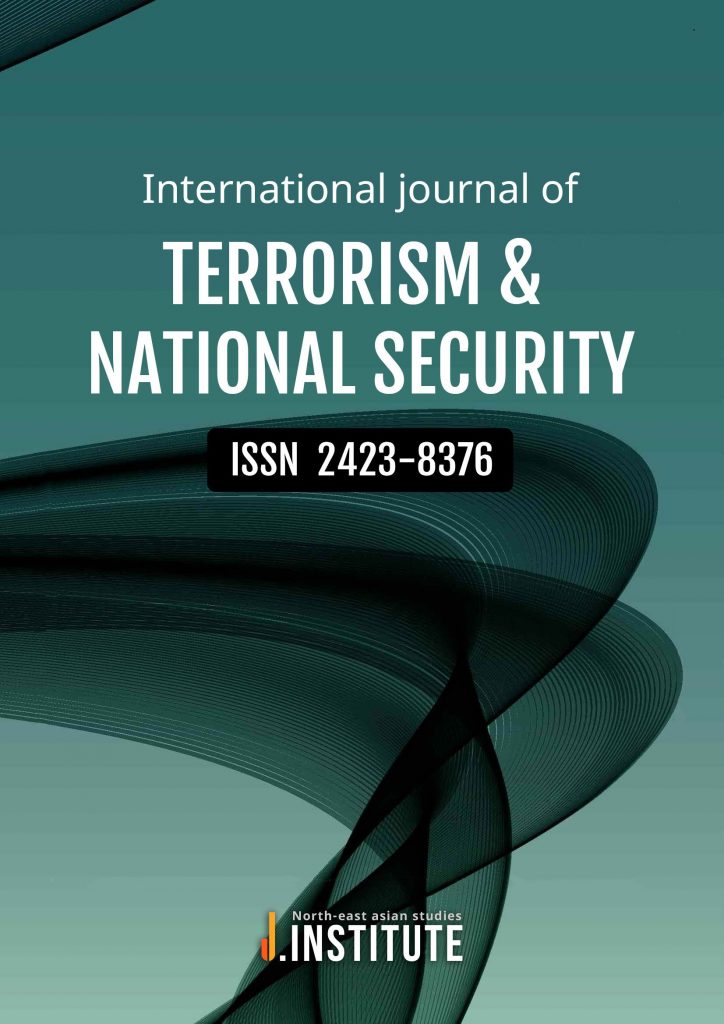'Korean Police' Selection Without Gender Distinction: A Review of the Physical Fitness Test: Focusing on the United States, France, and Japan
'Korean Police' Selection Without Gender Distinction: A Review of the Physical Fitness Test: Focusing on the United States, France, and Japan
- 동북아학술저널연합
- International Journal of Terrorism & National Security
- vol.8
-
2023.0832 - 46 (15 pages)
-
DOI : 10.22471/terrorism.2023.8.32
- 14

Purpose: The purpose of eliminating gender segregation in physical fitness testing for police recruitment can be understood as twofold. In the case of a gender-neutral selection process, a police organization can eliminate gender segregation in the selection process, including the physical fitness test, in order to pro-vide an equal opportunity for all applicants. The idea is to ensure that both men and women can take the test under the same conditions and that the best candidates are selected for police positions based on their abilities and skills. Gender-neutral job requirements. As with any industry, police work can be physi-cally demanding. As such, it may include a gender-neutral physical fitness test to verify the ability to per-form the duties of a police officer regardless of gender. This approach focuses on the abilities and skills required to do the job, and emphasizes a fair selection process that does not discriminate based on gender. Method: In order to study the physical fitness test for police recruitment without distinguishing between men and women, the following research methods were utilized. The current police physical fitness test con-sists of five events. The physical abilities of quickness, cardiopulmonary endurance, muscular endurance, and strength are measured through the physical fitness test, but the physical fitness test items related to the ability to respond quickly and accurately to constantly changing exercise tasks(coordination) are not included. Therefore, in order to meet various motor functions, it is necessary to refer to the Job Standards Test(JST) of the NYPD in the United States, which is composed of sports closely related to the job of a police officer, the physical fitness test of the MET Police in the United Kingdom, which is an event-type measure-ment method, and the Èpreuve d'exercices physiques of the French National Police. The Japanese National Police has a separate physical fitness test for new constables and a separate physical fitness test for police officers. In addition, there have been many legal cases in the West, such as the United States, regarding the advantages and disadvantages of the male and female fitness tests. This is especially true in the United Kingdom and the United States. Therefore, we conducted a comparative analysis to scientifically and ra-tionally improve the physical fitness test standards that disadvantage female applicants. Results: The results of a gender-neutral physical fitness test for “Korean police” recruitment can be un-derstood as follows. First, a unisex physical fitness test ensures that all applicants have an equal oppor-tunity to participate. It evaluates the abilities and skills required to perform police work regardless of gen-der, and provides a fair opportunity for all applicants without discrimination. Second, as an assessment of ability and vision, physical fitness tests help to assess the physical abilities and skills required to perform police work. These tests measure a candidate's physical strength, stamina, and power to help identify the right person for the job. Third, by enhancing diversity, gender-neutral physical fitness tests contribute to greater diversity and inclusion. Police organizations can recruit people from different backgrounds and genders to reflect more diverse perspectives and experiences. Fourth, it emphasizes fairness. A unisex phys-ical fitness test eliminates gender-based discrimination and focuses on applicants' skills and competencies. This ensures that all applicants are selected based on their abilities and helps prevent unfair treatment based on gender. These findings suggest that gender-neutral physical fitness tests for police recruitment contribute to fair and reliable talent selection and help stren
1. The Need for Research
2. Research Methods
3. Research
4. Theoretical Background on Police Physicals
5. Police Physicals and Fitness Tests
6. Male and Female Selection Systems and Physical Fitness Testing Standards in Foreign Police Forces
7. Conclusion
8. References
(0)
(0)